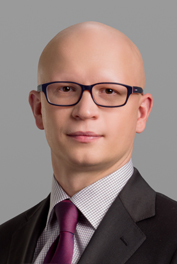INTELLECT-S wins landmark client case
The Higher Commercial Court Presidium took the side of the owner of the S.T.A.L.K.E.R., represented by INTELLECT-S.
|
|
Russia's Higher Commercial Court finally put to rest a case that triggered a chain of suits over rights to a video game brand used in publishing of a popular game-based book series. The Higher Commercial Court Presidium took the side of the owner of the S.T.A.L.K.E.R. video game logo which AST Publishing Group had illegally used to promote its STALKER Universe fiction series. The certiorari proceeding was not only crucial for the brand's owner, represented by INTELLECT-S, but also a landmark in IP case law.
INTELLECT-S partner Maxim Labzin and the firm's practice head Alexander Latyev represented S.T.A.L.K.E.R.'s owner Transavision Limited, a Cyprus company, and the Ukrainian video game software developer Mir Igr from the beginning. The firm's attorneys won the defense of their client's brand early in 2012 when they proved the solidity of the logo owner's case. The judgment did not however stand on appeal and subsequent cassation review: both appellate and cassation courts disagreed with the initial decision and sided with the plaintiff. The high-profile case went on certiorari before the Higher Commercial Court's Presidium.
The origins of the case date back to 2008 when the Cyprus company Transavision Ltd sublicensed AST Publishing Group the right to publish a series of fiction books based on S.T.A.L.K.E.R. video games under its logo. No one could possibly foresee at the time how things would turn out in the future.
|
S.T.A.L.K.E.R. is the most popular video game series in the post-Soviet countries and one of the world's best known. The Ukrainian developers have marketed three games since 2007. S.T.A.L.K.E.R.: Shadow of Chernobyl, S.T.A.L.K.E.R.: Clear Sky and S.T.A.L.K.E.R.: Call of Pripyat are first-person horror/survival shooters which won two Gameland Awards for the best domestic action and as the best domestic video games and were Editors' Choices in online and printed video game magazines CNews, Mail.Ru, PC Gamer, and Igromania.
S.T.A.L.K.E.R. has become a popular teenager cult brand as it gave rise to a subculture of "s.t.a.l.k.e.r.s" not only populating the virtual game universe, but also sharing a common set of values, a philosophy, and even "traditions." Outside the video game industry, S.T.A.L.K.E.R. spawned fiction, comic strips, movies, clothing, events, contests, a social network, and a multitude of online communities. |
The conflict emerged three years later as AST ceased sending the licensor its financial statements as was required by the license agreement, but went on publishing the best-selling S.T.A.L.K.E.R. book series. In July 2011 Transavision Limited terminated the license and sent AST notice requiring to stop publishing S.T.A.L.K.E.R. fiction.
The litigation flared up in September 2011 when AST group's affiliate Astrel Publishers struck back suing Transavision in the Moscow City Commercial Court for the nullity of the sublicense agreement it had published the books under. The plaintiff alleged that the Cyprus company had no right or title whatsoever to the S.T.A.L.K.E.R. logo as sublicensor, whereas no other subject matter in any form, such as screenshots or other graphics, had not been agreed on in either license or sublicense agreements.
The defendant, represented by INTELLECT-S, sued back: in December 2011 it filed three suits for relief against the infringement on its rights to the video games by AST's unauthorized publication and distribution of the S.T.A.L.K.E.R. fiction series, and later followed up with another action filed in October 2012 over the breach of fiction rights in the publication of the book Call of Pripyat.
Represented by the firm's ablest attorneys, the Cypriot sublisensor prevailed at the first trial early in 2012 when the court dismissed Astrel's action for the annulment of the sublicense after it ascertained a few decisive facts it had based its important holdings on. The court held, in part, that logos are protectable under copyright law, and that Astrel's publication of fiction did constitute the parties' agreement regarding the graphic solutions. The judgment also granted Transavision protection against the potential future refund of the license fees it had been paid.
Transavision's successful defense hinged on its license agreement with OOO NPP ParaType, a well known font developer. The parties made it legally retroactive under the Civil Code: the plaintiff had built its case on the defect of Transavision's title to the logo S.T.A.L.K.E.R. on Transavision, which used ParaType's typeface without the developer's formal consent. The court accepted Transavision's retroactive agreement with the ParaType made on INTELLECT-S's suggestion to legitimize the prior use of the typeface. Astrel attempted to challenge the impromptu typeface agreement, but Transavision, still represented by INTELLECT-S, successfully rebutted the attempt.
In the meantime, the courts did not hear on merits the actions filed by INTELLECT-S on behalf of its client against AST for copyright breaches pending the outcome of the first suit. Finally, the HCC Presidium's opinion rested the long drawn out case.
Trial lawyers are well aware of how hard it is to have a lower court's judicial error rectified on certiorari in the Higher Commercial Court. INTELLECT-S's attorneys made it — on November 5, 2013 the HCC Presidium accepted their client's case and voted to uphold the trial court's judgment and reverse the appellate and cassation review opinions.
I am positive that our success in S.T.A.L.K.E.R. is a landmark in intellectual property case law," comments Maxim Labzin. "We built out case on the premise that the parties to a license agreement can identify and agree its subject matter in the very process of its performance — by the fact that licensee uses the copyrightable object. We also demonstrated that unlicensed use of background copyrightables — a typeface, in this case — to create further copyrightables, does not prevent disposing of the resulting foreground copyright. We are glad that the HCC Presidium upheld our view.
Our IP and general civil lawyers demonstrated excellent professional interaction in that case," says INTELLECT-S practice head Alexander Latyev. "Our defense against the alleged nullity of the license agreement involved, on the one hand, such IP-specific matters as recognition of intellectual products as copyrightables and awarding protection to the authors' rights to use and dispose of them, and, on the other, so inherently civil-law questions as what constitutes grounds for voiding contracts and if contracts are contestable by customers on any of such grounds, if at all, after the acceptance of delivery. Finally, there was this fundamental question — how far apart IP rights and the general provisions of civil law really stand. The HCC has produced quite a body of guidance on the resolution of disputes arising out of more common contracts (such as building or lease) and held that the parties cannot evade performance under the pretext of the contract's nullity, but none on license agreements, which the plaintiff had built its case on. Although we are still to see the HCC resolution in print and practice, we have reasonable grounds to believe it will close the loopholes allowing bad-faith dealers to accept delivery and then repudiate the contracts as allegedly non-existing.
INTELLECT-S demonstrated its best qualities in this case: our ability to overcome any obstacles, however formidable, our tenacity and staunch consistency in the defense of a case, and readiness to deploy any number of attorneys necessary to obtain the result," says managing partner Evgeny Shestakov. "The firm's advising lawyers have solved a task of great professional magnitude — in addition to Maxim Labzin's and Alexander Latyev's key contribution in courtroom: it is their talent, expertise and energy that underlay our S.T.A.L.K.E.R. success.
The S.T.A.L.K.E.R. litigation is going on as courts are busy hearing copyright actions that Transavision, represented by INTELLECT-S, filed against AST.
The details of all the cases can be found in Russian in the Commercial Court's case files at http://kad.arbitr.ru: А40-92833/11, А40-3837/12-5-34, А40-9539/12-12-12











